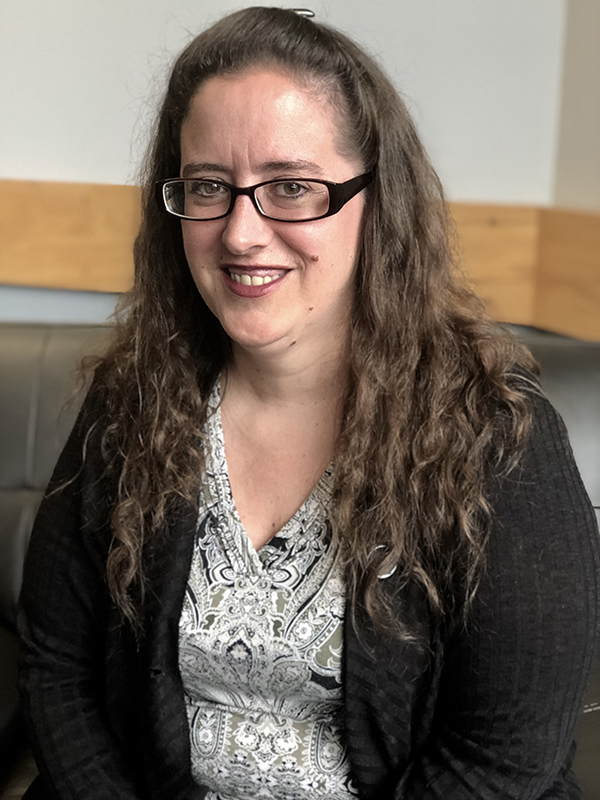Get Help
If you or a loved one needs help now, our caring staff are available. Reach out today.
Donate
Join us in making lives better.
Sign Up for Our Mailing List
Make a Referral
Complete our referral form for a person you support or family member in need of services
 Linda Griffith, program director, Brain Injury Residential Services, (and Certified Brain Injury Specialist) says her goal is to help as many people with brain injuries as possible to move away from such restrictive settings as nursing homes and into homes that have been carefully designed and built or renovated to meet the physical and rehabilitative needs of the individuals. “The day when people move in—there is nothing like it,” she says.
Linda Griffith, program director, Brain Injury Residential Services, (and Certified Brain Injury Specialist) says her goal is to help as many people with brain injuries as possible to move away from such restrictive settings as nursing homes and into homes that have been carefully designed and built or renovated to meet the physical and rehabilitative needs of the individuals. “The day when people move in—there is nothing like it,” she says.
In more than 24 years working with people who have survived acquired or traumatic brain injuries, Linda has discovered that she values building relationships with people most—individuals and their families and the staff members whom she supervises. “I get more value in seeing people grow and succeed; they grow so much here.” As Brain Injury Services have grown at Advocates, the program has hired staff who are able to care for people with more complex health and behavior needs and designed homes for higher levels of care.
As a supervisor, Linda believes in Advocates’ approach to Positive Behavior Supports (PBS). “It is important to catch [staff members] doing the right thing,” she says. “I give a lot of feedback, because I want to see more of those positive behaviors. We want to see PBS in action and be there to help when staff encounter difficulties.” Every month, Brain Injury and Developmental Services each recognize a “PBS Champion.”
Linda’s position takes her to Advocates’ seven brain injury homes, located in residential communities (two new homes are in development). She talks with individuals about their satisfaction in their homes and their opportunities to participate in their communities and see people they care about. “The last thing I would want is for people to just sit,” says Linda.
“We try to maximize family involvement whenever we can,” says Linda. Family members attend birthday celebrations, barbeques, and even Thanksgiving dinner. Linda described how individuals and their family members and staff came together to learn about differences in each other’s culture and in gaining more understanding of each other, they grew closer.
A welcoming environment is important, Linda emphasizes. Outside of busy morning hours when individuals are receiving care, or evenings when they may have already turned in, Linda encourages staff to let families know, “You’re welcome anytime.”